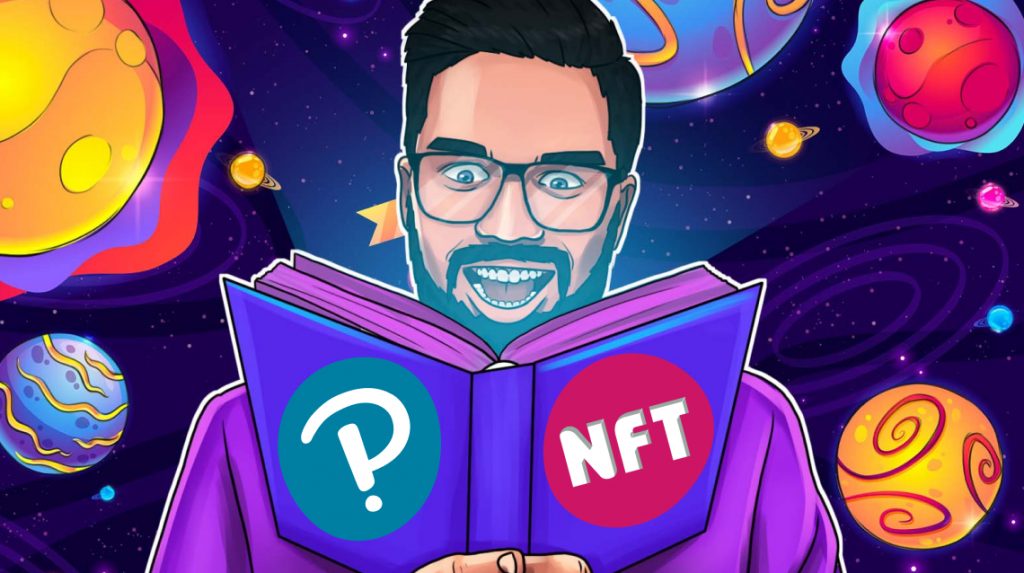Pearson CEO says they’re considering NFT textbooks–but is it all talk?


On an August 1 earnings call, Pearson CEO Andy Bird teased the idea of dropping their textbooks as NFTs to capitalize on secondary market sales. Since then, the internet has seized on the development, decrying Pearson’s aim to wrench more money from struggling students.
Some commentators have paused to consider if Pearson’s approach could be advantageous, or even possible, given market conditions and the lit industry’s other blockchain forays.
“In the analogue world, a Pearson textbook was resold up to seven times, and we would only participate in the first sale,” Bird told reporters following the London-based company’s interim results on Monday, according to Bloomberg. “The move to digital helps diminish the secondary market, and technology like blockchain and NFTs allows us to participate in every sale of that particular item as it goes through its life.”
Textbooks are expensive and only useful for a little while. What would anyone do with a specific volume they only need for a class that lasts a few months? In most cases, students harness the first-sale doctrine to resell these tomes. In this win/win situation, the purchaser can recoup their losses while providing another student with the requisite reading material at an affordable price.
The advent of ebooks has complicated that equation because they’re more challenging to re-sell. Physical books are often more desirable from practical and repurposing perspectives.
Regardless, students could photocopy or screenshot pages from their textbooks to share. This hypothetical situation marks a facsimile of the central purpose that made blockchain tech so valuable for digital artists in the first place–overriding the proverbial “right click save” by providing means to prove actual ownership with an inalterable, anonymous online ledger.
Enter Andy Bird, former chairman of Walt Disney International. The Guardian said Pearson appointed Bird CEO in 2020 to abet “the growing costs of producing university textbooks, and the fact that many students opt to buy such books secondhand.”
So far, it seems like Bird’s doing his job. In addition to launching an ebook subscription service called Pearson+ (sound familiar?) Cointelegraph reported the company’s 2021 revenue topped a whopping $4.2 billion, and they’re set to outdo themselves in 2022–profits are up 14%. In addition, their earnings for the first half of this year beat analysts’ projections, topping $2.2 billion.
Bloomberg said Pearson shares rose 10% on Monday morning following Bird’s NFT comments, ”their most significant intraday move since the company received a takeover approach in March.”
Some readers have wondered if that was the point–if Bird employed “NFT” as a buzzword to stoke shareholder excitement.
While NFTs present a beneficial tool for the literary world as a way to self-publish, the problem with Bird’s latest scheme at Pearson lies in motivating their customers. What student cares about owning the rights to their book? How can students afford to skip on cost-savings? For Pearson to make this next step possible, they’ll have to force it as a requirement.
“NFTs don’t bring an obvious technical innovation to this question,” The Verge noted. Digital database technology already exists, empowering precisely the kind of resale tracking that Pearson allegedly seeks.
“A blockchain offers a decentralized version of that database, but the odds of Pearson using a fully decentralized, open system are approximately zero,” they continued. “It would almost certainly extend an existing copy protection scheme to stop non-NFT owners from pirating its books. That would make the NFT a fig leaf on top of an old-fashioned digital rights management or DRM framework.”
NFTs could offer at least one benefit for students, even if the move appears unlikely in the immediate future. The move would allow students to re-sell ebooks for something rather than nothing. However, Pearson has a lot of power and could easily sway policies in their favor–and we can’t put any insidiousness past Bird since he used to work for IP’s evil empire.
“Library ebooks have self-destruct conditions that require buying new copies after a certain number of checkouts,” The Verge said, citing just one example of an exclusionary feature Pearson could employ.
Like any good NFT project, Pearson will have to pack on some utility to encourage adoption.
“We have a whole team working on the implications of the metaverse and what that could mean for us,” Bird said on this week’s call, perhaps referring to their forthcoming virtual learning platform known as OPM.
With Metaverse learning this summer’s hottest topic in advance of the coming semester, Pearson should focus on the collective benefits of Web3’s proliferation, sneaking past profit-hungry shareholders by calling it a PR campaign if necessary.
Read related posts:
Disclaimer
In line with the Trust Project guidelines, please note that the information provided on this page is not intended to be and should not be interpreted as legal, tax, investment, financial, or any other form of advice. It is important to only invest what you can afford to lose and to seek independent financial advice if you have any doubts. For further information, we suggest referring to the terms and conditions as well as the help and support pages provided by the issuer or advertiser. MetaversePost is committed to accurate, unbiased reporting, but market conditions are subject to change without notice.
About The Author
Vittoria Benzine is a Brooklyn-based art writer and personal essayist covering contemporary art with a focus on human contexts, counterculture, and chaos magic. She contributes to Maxim, Hyperallergic, Brooklyn Magazine, and more.
More articles

Vittoria Benzine is a Brooklyn-based art writer and personal essayist covering contemporary art with a focus on human contexts, counterculture, and chaos magic. She contributes to Maxim, Hyperallergic, Brooklyn Magazine, and more.


















































